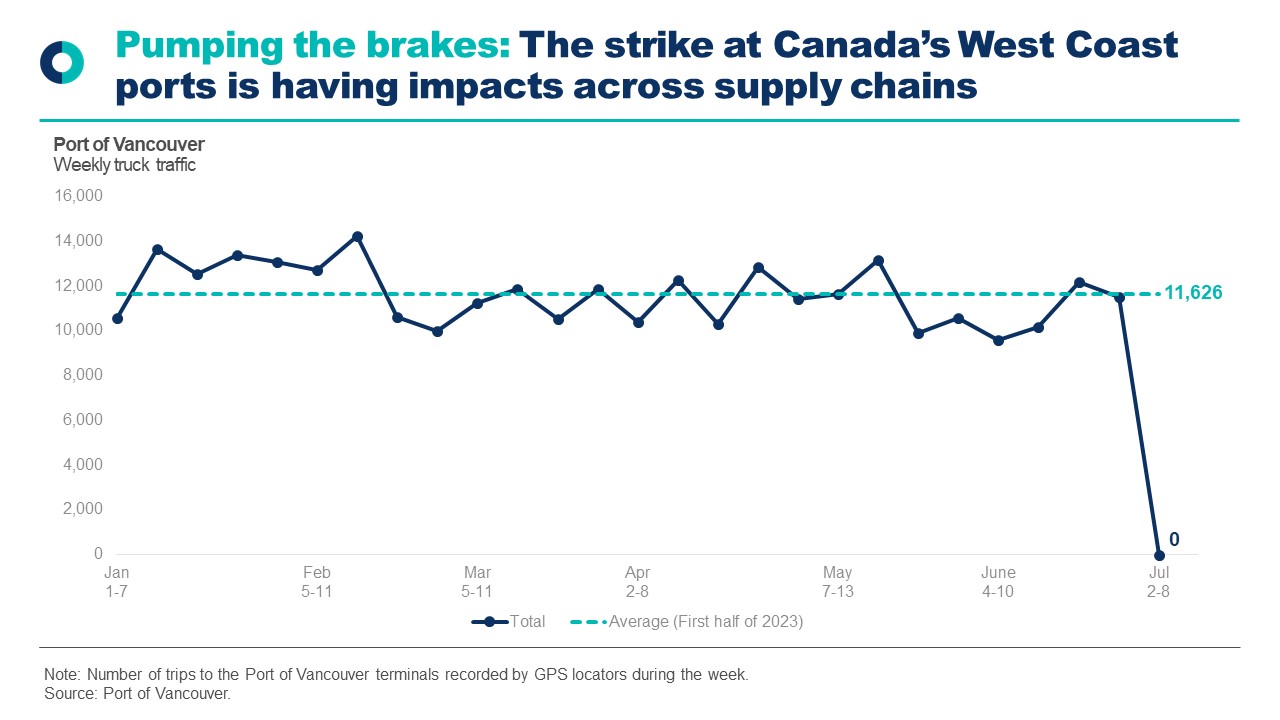
Pumping the brakes: The strike at Canada’s West Coast ports is having impacts across supply chains
Jul 18, 2023
Pumping the brakes: The strike at Canada’s West Coast ports is having impacts across supply chains
Last week, a tentative agreement was reached to end a 13-day strike that is causing significant disruptions to shipments across Canada’s Western ports — including the Ports of Vancouver and Prince Rupert, which are the first and third busiest in the country.
The Greater Vancouver Board of Trade estimates that $9.9 billion in cargo was disrupted, covering a wide range of products from manufacturing, autos, forestry, agriculture, energy as well as consumer items and apparel.
These disruptions will be felt well beyond ports on Canada’s West Coast. The backlogs created by the strike will ripple through supply chains, causing work disruptions and congestion across the transportation system for in-land rail and trucking connections, with delays and higher costs for businesses and consumers — not only those in Canada, but in the United States and several Asian-Pacific countries.
The Business Data Lab’s high-frequency data are already picking up negative economic spillovers. We estimate the strike put the brakes on nearly 21,000 related truck-trips in the Port of Vancouver alone. (Truck traffic stopped for 13 days, down from its average of 11,626 trucks moving per week in the first half of the year.)
It will likely take several more weeks, or even months, to clear up the backlogs created by the strike. Looking ahead, we expect to see more impacts in July’s statistics for Canada’s trade.